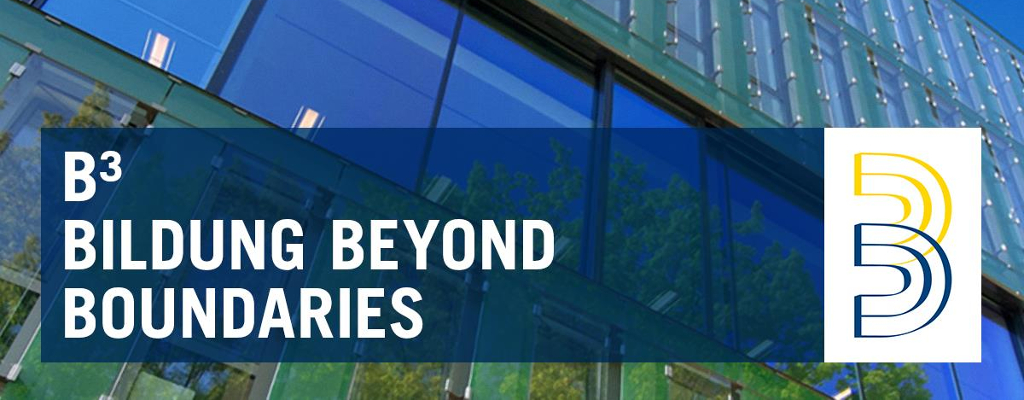During these pandemic times, museums transcended the boundaries of physical location like never before. Visitors from all over the world were able to see their favorite exhibits virtually. Here in Bremen, the B³ project “The Hybrid Neighbourhood Museum- Portal to the World”, will show material and digital exhibits within its location on the Jacobs University Campus, as Augmented Reality (AR), beyond physical boundaries. It is designed to become a place of reflection, openness and inclusion, just like our campus, a true “Portal to the World”. To learn more about this project, click here!
AMIGO - Algorithmic Method for Intelligent Group formation

The B³ Project AMIGO (Algorithmic Method for Intelligent Group formation) explores the question of how to maximize cooperative learning among student groups.
Click here and learn about the algorithmic method for intelligent group formation that will be integrated in online learning platforms at Jacobs University this coming Fall 2021.
This is the future of optimized cooperative learning!
Imparting Creativity in Distance Learning

Did you know that creativity is perceived as one of the most sought-after skills for future workforce, but is barely included in existing e-learning programs and courses?
Addressing this discrepancy is the main objective of the B³ cross-border project titled: “Imparting Creativity in Distance Learning”, which brings forward an e-learning solution to foster student’s soft skill “creativity” at three different universities, while enabling instructors to foster creativity in their courses and study programs.
Learn more about the innovations on creativity learning brought by this interesting B³ Project by clicking here!
Restructuring a Biochemistry Lab

Introductory Lab courses in the natural sciences tend to rely on the “pedagogy of repetition”, usually handing out students a lab manual containing pre-formulated methodology, experimental procedures and explanations that they are supposed to follow and replicate, oftentimes without the engagement of critical thinking and problem-solving skills. The B³ project “Restructuring a Biochemistry Lab” wants to change this “status quo”, by proposing an overhaul of the structure of a second year Lab course on Biochemistry, drawing from a Problem-Based, Inverted approach to Experimental Design teaching, while incorporating digital interventions. Click here to learn more!
DeALS-Phys

The “Developmental Adaptive Learning Support for Physics Students” Project, also known as "DeALS-Phys", addresses the challenge to personalize learning at universities by developing platforms adaptive to student´s individual needs. Such a platform, e.g. for homework problems in physics, will help professors teach a wide range of different problem-solving strategies to students with different academic backgrounds. To characterize and investigate students' needs, the platform in development is based on an innovative ‘3D’ model of cognitive, metacognitive, and motivational dimensions of students’ problem solution strategies. Learn more about the innovations on personalized learning brought by DeALS-Phys by clicking here!
The Hybrid Neighbourhood Museum - Portal to the World
“Hands-On 4.0” Individualized Applied Education in the Digitalization Age
“Hands-On 4.0” is seen as the next iteration in experiential learning. At Jacobs University, the development of hands-on 4.0 has taken place with the introduction of three courses that feature: Gamification; Open Source Lab Components; Collaborative Problem-Solving and Individualization. Learn more about the innovations in experiential learning brought by “Hands-On 4.0” by clicking here.
DIGITAL CONTINGENCIES - Prospects and Limitations of Technology in Digital Humanities
Uncertainties, doubts and contradictions in dealing with sources are not uncommon in the humanities. However, these pitfalls are not properly represented in digital formats, as documented digital methods suggest a false sense of security, creating an impression of precision which may not be supported by the underlying data. This project explores this false sense of accuracy, by focusing on the development and evaluation of educational methods dealing with these inaccuracies (contingencies) in the context of the field of digital humanities. To learn more about this project, click here!
Lab@home - Concept Angleichung
Current university lab courses often cover concepts that students don’t have an immediate connection with, especially in classical subjects such as Physical-Chemistry, that can be rather abstract. The proposed solution, aimed at bringing the topic closer to students, is the newly coined “Concept Angleichung”. The German word “Angleichung” can be translated as adjustment, alignment, adaptation, harmonization. These are the ideas that underpin the ambitious B³ project “Lab@Home-Concept Angleichung. Click here to learn more!
